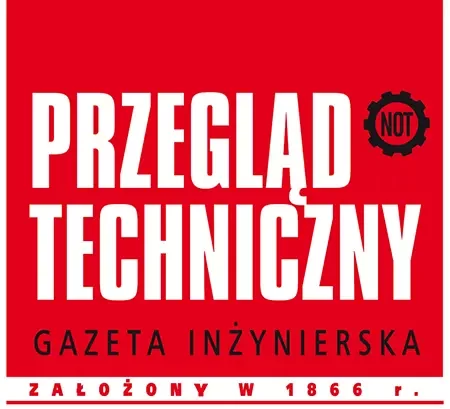Vocational education, which has been underestimated for years, is slowly being revived in Poland. Thanks to the changes being made, the vocational education system is evaluating and becoming more responsive to the needs of students, teachers, schools, as well as companies seeking employees.
However, it requires further reform so that education for science, the economy and the labor market can meet actual expectations. These issues were the subject of the 9th “Vocational Education Unites Us” conference.
Conferences in this series are organized by the Federation of Scientific and Technical Associations NOT (FSNT-NOT) and the Polish Craft Association (ZRP) under the signed 12.04.2012. agreement between the two organizations. These conferences were initiated by the FSNT-NOT Scientific and Technical Staff Development Committee. He, too, together with the ZRP, is preparing the event substantively and organizationally. Fruitful meetings on the development of vocational education are held alternately at the FSNT-NOT headquarters and at the ZRP headquarters.
– Vocational training at various levels of the technical and industry education system is extremely important for both parties to the signed agreement, as well as for the FSNT NOT Scientific and Technical Committee for the Improvement of Technical Personnel,” emphasized Prof. Ph. Eng. Włodzimierz Miszalski chairman of this Committee after the start of the meeting. – This is because it is necessary to have an influx of qualified personnel for a properly developing economy and labor market. It is necessary to use every potential for this, which creates good solutions.
Representing FSNT-NOT, Vice President Kamil Wojcik referred to the initiatives undertaken by the Federation that address these needs – We focus on such activities that promote technical education among young people. One of them is the Technical Knowledge Olympiad recently narrowed down to electrical and power engineering. In the near term, we intend to expand it to include those areas dealt with by FSNT-NOT-affiliated associations, and we have 40 of them. We point young people to good and intelligent role models, warning them against reaching for unproven knowledge, which they often get from social media.
Jan Gogolewski, president of this organization and at the same time vice-chairman of the Social Dialogue Council, referred to the role played by the Polish Craft Association in the process of vocational education. He pointed out that first- and second-level trade schools are a good alternative for young people who are thinking of entering the labor market quickly, are entrepreneurial and like learning by doing: – In recent years, Poland’s vocational education has been undergoing a significant transformation thanks to innovations and attractive vocational offerings. Young people are more motivated to pursue vocational training and apprenticeships, but there is still a lot of work to be done to take care of the cadres needed for the economy and the labor market.
DUPLICATE BEST PRACTICES
There were many good models years ago that can be referred to in creating a model vocational training system. Such an example was the “Innovative Technology” project on innovative solutions in education, developed by members of the FSNT-NOT Scientific and Technical Committee for the Improvement of Technical Personnel. The project was implemented in many schools across the country before the abolition of middle schools.
In the multimedia presentation “Non-formal technical education, needs in the formation of new practices,” developed by Dr. Eng. Jerzy Kollataj and MA. Eng. Kazimierz Okraszewski, members of this Committee, presented the benefits of the “Innovative Technology” project, which lasted several years.
Citing NOT’s mission, which prioritizes the development of technical skills and the formation of technical attitudes among young people, Dr.-Ing. Jerzy Kollataj, pointed out the benefits of introducing non-formal education in schools. -This form of education is a supplement to curriculum-compliant teaching, which ends with a certificate confirming mastery of the material or the acquisition of certain qualifications ,‖ explained Jerzy Kollataj. – Non-formal education is about spontaneous learning. Knowledge can be acquired effortlessly through practical activities, rather than just sticking to rigid schemes according to available curricula.
For example, at a middle school in Bialystok, supported by the city government, the results of a program of innovative science, technology and humanities education were impressive. The youngsters learned, during practical classes, among other things. Assembling, soldering and testing electronic circuits. The assumptions of this program, developed a dozen years ago, are still relevant today and can be revisited.
Good practices in innovative initiatives to support vocational school students in proper preparation for their future work were also shared by representatives of, among others: Group of High Schools and Technical Schools No. 1 in Warsaw, Group of High Schools in Kleszczów, Branżowa Rzemiosła School in Bydgoszcz and Branżowa Rzemiosła School in Tarnów.
EXPECTATIONS OF ENTREPRENEURS
For the first time, the “Vocational education connects us” conference also included representatives of large, medium and small companies in a panel discussion, who shared their experiences and observations on cooperation with vocational and industry education. A rather critical picture emerged from this discussion. Schools do not have the modern facilities to educate students in a way that satisfies employers. In an era of widespread digitization, automation, artificial intelligence and robotics, young people are not getting the right skills. This is a serious problem that needs a quick solution. The profile of vocational training is being adapted to technological changes in the market, but practical vocational training is sorely lacking. Reform of trade and vocational education is necessary in this situation.
The conference was attended by representatives of: chambers of crafts and guilds, scientific and technical associations, technical and trade schools and teacher training centers, whose organizers encouraged a general debate on the reform of vocational education in Poland.
Jolanta Czudak



